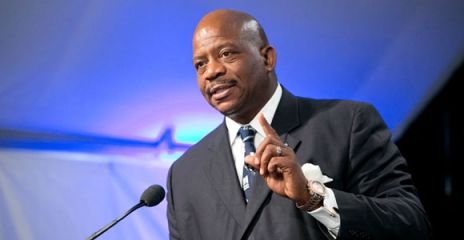For anyone who has extensively studied or has any other sort of vested interest in the non-violent resolution of the ongoing Israeli-Palestinian conflict, the events that transpired this past summer in the West Bank and Gaza Strip served as a gruesome and stinging reminder. There has been little to no progress made—by either side or the international community as a whole—in seeking a more peaceful alternative to settling their ideological differences without destroying or ending the lives of countless innocent individuals.
Unfortunately, the mainstream media as well as leading officials from Israel, Palestine, and the United States have elected to engage in typical character assassination and demonization. They fail to work together to find a common ground upon which to develop a progressive course of action to bring stability to a region that has long been anything but stable. Sectors of the media emphasized reports that Israeli youths were kidnapped and murdered by Hamas, and that Israeli forces deliberately bombed UN schools that were sheltering Palestinian refugees. These reports further confused and traumatized those who hopelessly sought to make sense of the horrifying carnage.
The UN, despite serving as the international body of power that can have the most positive impact on resolving the conflict, has instead consistently taken a passive approach. It persists in issuing “strong condemnations” that merely equate to verbal slaps on the wrist and do little to uphold international law. It’s certainly doing very little to ensure that the Universal Declaration of Human Rights is considered anything other than a myth or Utopian ideal that holds no significance in contemporary society.
The United States, one of the few superpowers involved in the conflict, has not only consistently sided with Israel’s demands and political positions during previous negotiation efforts, but also provided the state of Israel with substantial financial and military support in the form of advanced weaponry and grants in excess of millions of dollars.
All of these detrimental factors have led many to surmise that, if there is a solution to the Israeli-Palestinian conflict, it will not be found through traditional political institutions, but rather in the diverse collective setting of modern academia.
Through the traditional use of impartial analysis, progressive dialogue, and bipartisanship, academia has a rare and unique opportunity to bring lasting change to an embattled region. It can show the rest of the major sociopolitical forces how to approach complex problems with a level head and full consideration and respect for the cultural differences between two different ethnic groups. The question now: who will take part in this revival effort, and what will be their course of action?
Unfortunately, academia is not immune to the conflict that occurs when there is a difference of opinion within an institution. An excellent example of such conflict took place at the University of Massachusetts Boston this past Spring Semester. Several instructors and faculty members affiliated with the American Studies Association published a statement on the university’s website that called for a boycott of Israeli academic institutions on the grounds that the institutions were complicit in the violation of Palestinian human rights.
The statement went on to explain that Palestinians were prevented from traveling to and from the West Bank, Gaza, and Israel; that Palestinian schools and universities were unable to properly function due to constant harassment and violent attacks by Israeli forces; and that Palestinians were forbidden by Israeli law to study or even recognize the Palestinian dispossession of 1948.
In response to the call for the boycott of Israeli academic institutions, Chancellor J. Keith Motley issued a statement of his own. He stated that UMass Boston strongly opposed the proposed boycott on the grounds that higher education was founded on the policy of free, respectful exchange of ideas and that the boycott would be a disservice to the concept of academic freedom.
Motley acknowledged the faculty members’ right to advocate for their views respectfully, but did not leave any room for debate or differing opinions. Somewhat presumptuously, Motley seemed to imply that his beliefs regarding the matter were reflective of UMass Boston’s as a whole.
Rather than simply issuing statements, both sides could have created an opportunity to share their beliefs and expand their understanding of the opposing side’s train of though. An invitation to all interested parties to engage in group discussions would have created more substantial discourse on the subject than has been here in the past. A similar open forum happened on campus during the Spring Semester–but obviously more are needed.
There are undoubtedly a large number of students from all backgrounds and walks of life who are deeply interested in current events and want to discuss the issue in order to come up with a solution that meets the needs and interests of all those involved in the conflict.
In fact, there should be more open discussions between faculty members and administrators on all topics, controversial or otherwise. Openness and transparency are noble attributes for universities to possess, and establishing an environment in which discussions of such nature can take place would truly be a remarkable achievement.
By addressing the issues of communication and transparency between administrators, faculty members, students, and all others who call UMass Boston home, we can create a more cohesive, tolerant community in which we can all play a role in addressing the most pressing issues facing not only UMass Boston, but the world at large. Through leading by example, we can restore order to a biased and hostile political landscape.

